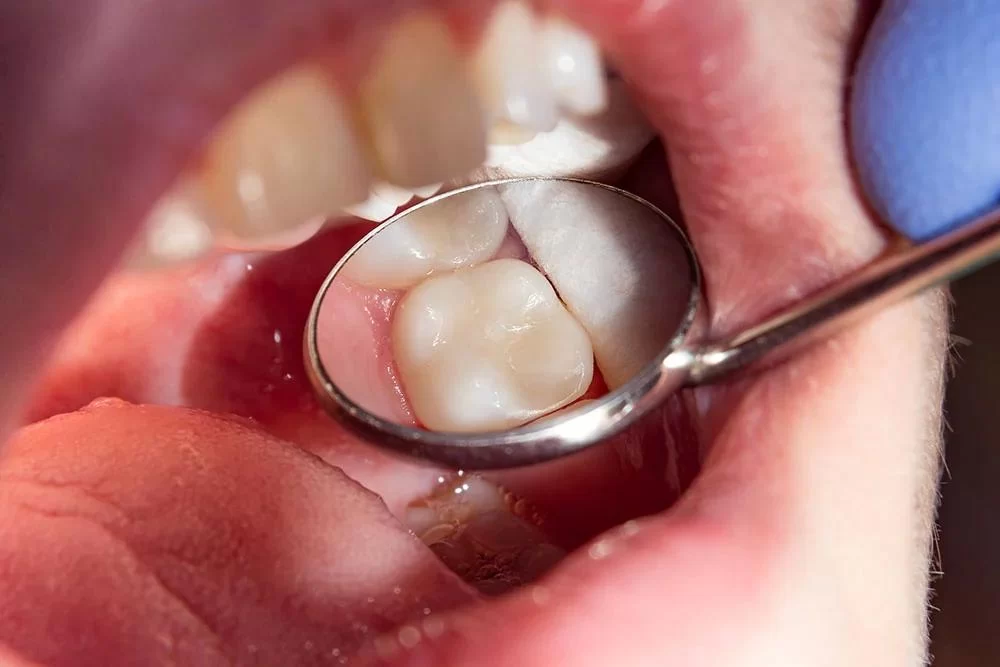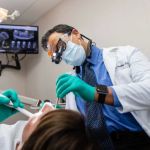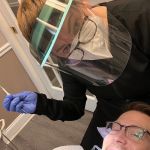
How to Keep Your Teeth Cavity-Free and Healthy
As someone who has struggled with cavities in the past, I can tell you that preventing them from developing is far easier than dealing with them later. I remember my first cavity—how I felt when I was told I needed a filling. It was uncomfortable, and it made me realize how important it is to take better care of my teeth. Over the years, I’ve learned some valuable tips for preventing cavities, and I want to share them with you. By following a few simple yet effective strategies, you can keep your teeth cavity-free and maintain optimal oral health.
1. Brush Your Teeth Properly and Regularly
The foundation of cavity prevention is proper brushing. I used to brush my teeth quickly, not paying much attention to technique or timing. But once I learned the importance of brushing for two full minutes, I noticed a difference. It’s important to brush all surfaces of your teeth—front, back, and chewing surfaces. You should also brush your tongue, where bacteria can hide.
Here’s what I do to ensure I’m brushing effectively:
- Brush twice a day: I make sure to brush my teeth in the morning and before bed to remove plaque and food particles.
- Use fluoride toothpaste: Fluoride helps strengthen tooth enamel, making it more resistant to cavities.
- Be gentle: Brushing too hard can damage your gums and enamel. I use a soft-bristled toothbrush and avoid applying too much pressure.
2. Floss Daily to Remove Plaque Between Teeth
Flossing has become a non-negotiable part of my routine since I learned how important it is for preventing cavities. Plaque tends to accumulate between your teeth, where your toothbrush can’t reach. If plaque isn’t removed, it can turn into tartar, which can lead to tooth decay. I floss at least once a day, and it’s a quick and easy way to protect my teeth from cavities.
Here are a few flossing tips I follow:
- Use the right technique: I gently slide the floss between my teeth and curve it around each tooth in a C-shape to remove plaque.
- Be consistent: I make sure to floss every day, even if I’m busy. It only takes a few minutes, and the results are worth it.
3. Watch Your Diet and Limit Sugary Foods
Diet plays a huge role in cavity prevention. I learned that sugary foods and drinks are the main culprits when it comes to tooth decay. Bacteria in the mouth feed on sugar, producing acids that can break down tooth enamel and lead to cavities. I used to indulge in sugary snacks, but I’ve since learned to limit my intake and replace them with healthier alternatives.
Here are some dietary changes I’ve made to prevent cavities:
- Avoid sugary snacks: I try to limit foods like candies, soda, and baked goods, as they can contribute to plaque buildup.
- Eat tooth-friendly foods: I eat more crunchy vegetables, like carrots and celery, which help clean teeth naturally. I also drink plenty of water to keep my mouth hydrated and rinse away food particles.
- Limit acidic foods: Foods like citrus fruits, vinegar, and tomatoes can weaken tooth enamel. While I still enjoy these foods, I try to consume them in moderation and rinse my mouth with water afterward.
4. Drink Plenty of Water
Water has become my best friend when it comes to oral health. It helps rinse away food particles and bacteria that can contribute to cavities. I make sure to drink plenty of water throughout the day, especially after meals. Water also promotes saliva production, which is important for neutralizing acids in the mouth and protecting my teeth from decay.
If you’re like me and enjoy coffee or tea, I’ve learned that drinking water after these beverages helps protect my teeth. It’s a simple habit, but it makes a big difference in preventing cavities.
5. Use Mouthwash to Kill Bacteria and Strengthen Teeth
After brushing and flossing, I finish my oral care routine with mouthwash. Mouthwash helps kill bacteria in my mouth, freshens my breath, and provides additional protection against cavities. There are many types of mouthwash available, but I prefer one that contains fluoride to strengthen my enamel and reduce the risk of decay.
When choosing a mouthwash, I recommend looking for one that fights plaque and gingivitis, as these are directly linked to cavity formation. Be sure to follow the instructions on the bottle for the best results.
6. Visit Your Dentist Regularly for Cleanings and Checkups
No matter how diligent I am with my brushing and flossing, regular dental checkups are essential for preventing cavities. I’ve learned that even if I can’t see or feel problems with my teeth, a dentist can detect early signs of decay and treat them before they become major issues.
At my dental checkups, my hygienist performs a thorough cleaning to remove any plaque and tartar buildup that I may have missed. I also get a fluoride treatment, which helps strengthen my teeth and protect them from cavities. My dentist can also provide guidance on areas of improvement and recommend additional products to keep my teeth cavity-free.
7. Consider Dental Sealants for Extra Protection
One preventive measure I recently learned about is dental sealants. Sealants are thin coatings applied to the chewing surfaces of your back teeth, where cavities are most likely to form. I decided to get dental sealants applied to my molars, as they provide an extra layer of protection against plaque buildup and cavities. The procedure is quick and painless, and I felt good knowing my teeth were better protected.
Dental sealants are especially beneficial for children and teens, but adults can benefit from them too. I recommend discussing sealants with your dentist to see if they’re a good option for you.







 Sugar Hill Family Dental4.0 (83 review)
Sugar Hill Family Dental4.0 (83 review) Cazes Family Dentistry LLC4.0 (61 review)
Cazes Family Dentistry LLC4.0 (61 review) Omega Dental Care4.0 (74 review)
Omega Dental Care4.0 (74 review) Dr. Stephen M. Buchanan, DDS3.0 (10 review)
Dr. Stephen M. Buchanan, DDS3.0 (10 review) Samson Wahl & Associates5.0 (6 review)
Samson Wahl & Associates5.0 (6 review) Fair Lawn Periodontics & Dental Implants4.0 (191 review)
Fair Lawn Periodontics & Dental Implants4.0 (191 review) The Importance of Oral Health Education During Pregnancy for a Healthy Pregnancy
The Importance of Oral Health Education During Pregnancy for a Healthy Pregnancy Best Tips for Brushing Your Teeth Properly for Healthy Gums: Essential Techniques for Oral Health
Best Tips for Brushing Your Teeth Properly for Healthy Gums: Essential Techniques for Oral Health Why Skipping Dental Checkups Can Lead to Bigger Oral Health Problems
Why Skipping Dental Checkups Can Lead to Bigger Oral Health Problems Advantages of Porcelain Dental Restorations
Advantages of Porcelain Dental Restorations How Can Diabetes Cause Tooth and Gum Problems? Preventing and Managing Oral Health Issues
How Can Diabetes Cause Tooth and Gum Problems? Preventing and Managing Oral Health Issues Healthy Habits for Promoting Good Oral Health and Hygiene: Tips for a Healthy Smile
Healthy Habits for Promoting Good Oral Health and Hygiene: Tips for a Healthy Smile